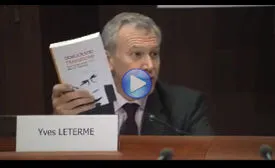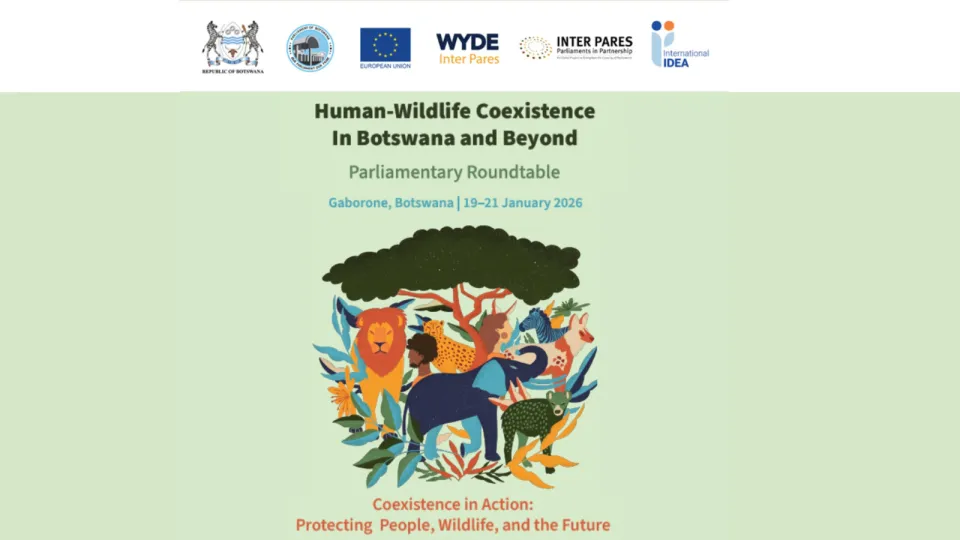
The struggle between freedom and control in open society is constantly a hot topic in many democracies, but perhaps more so today given recent events in Paris. How can democracy deliver safety, prosperity and freedom to all?
This question was central to this year’s annual Forum for Democracy, organized by the Council of Europe in Strasbourg, France, and it is also central in International IDEA’s book Democratic Transitions: Conversations with World Leaders.
Wrapping up a full day of sessions, debates and seminars International IDEA therefore hosted a panel discussion on freedom versus control in emerging democracies. Though, the theme is not only relevant to new democracies, said Snežana Samardžić-Marković, Director General for Democracy at the Council of Europe, and one of the panellists.
“[These] stories are an inspiration and guidance for today’s leaders of emerging democracies from Egypt and Iraq to Myanmar,” she said, referring to the interviews with former world leaders collected in the book including Nigeria’s President Olusegun Obasanjo.
“They are also warnings to leaders of mature democracies, and a reminder that the work of building democracy is never finished. Democracy as we all know is labour intensive. It needs a lot of effort from everyone.”
One of the panellists and one of the former world leaders interviewed in detail in the book was former Romanian Prime Minister Petre Roman. Roman, who was prime minister 1989-91, following a bloody revolution that ended in the death of Dictator Nicolae Caeusescu in 1989, talked about the importance of sharing experiences.
“In order to change the world…you have to understand it and explain it,” Roman said, speaking in French to show his solidarity with the victims of last Friday’s terrorist attacks in Paris.
“[In Romania at the time] no one had any idea how you can move from an absolute dictatorship with a state controlled economy to a democracy with an open market.”
When it comes to freedom versus control, Roman added, there is a duty that comes with freedom and that liberty can never be taken for granted.
“We didn’t succeed as well as we could have but we did our best…. But if there is one thing that is still as wonderful as beautiful as it was in the beginning it is winning our freedom.”
International IDEA’s Secretary-General Yves Leterme attended the panel discussion, which was moderated by President of the Parliamentary Assembly of the Council of Europe Anne Brasseur. Due to a last minute cancellation Moncef Marzouki, President of Tunisia from 2011-14 shared his comments in a French language letter read by Leterme.
As part of the panel Leterme also presented some of the conclusions and recommendations made by the authors.
“First, the importance of unity,” he said. “When the opposition to the dictatorship is divided, those oppositional forces may have difficulty to be seen as credible alternatives… [C]onvergance and coalitions must be built to foster peaceful transitions”.
Leterme also highlighted the need to move forward incrementally, emphasizing reconciliation and handling military, security and intelligence forces with special care for a peaceful transition.
“The last important lesson I would like to highlight, is the importance of managing the transfer of power,” said Leterme. “Those who take power have to end violence and foster civic order and make all forces act within the law.”



